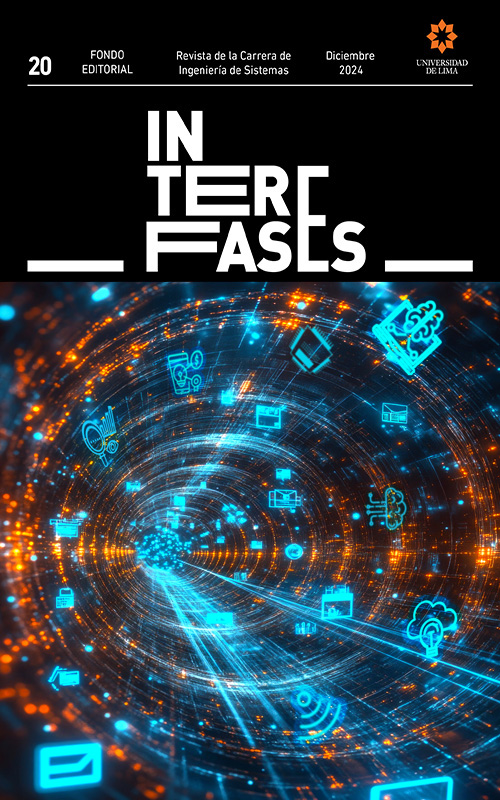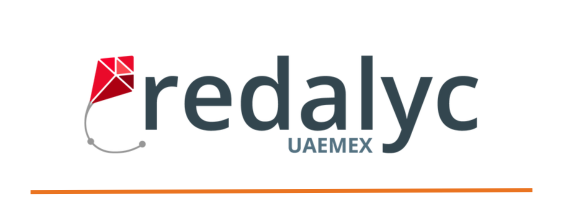Perspectives on AI Education: the Importance of Including AI Skills and Technical Competencies in Curricula
DOI:
https://doi.org/10.26439/interfases2024.n020.7198Keywords:
artificial intelligence, curriculum, survey, technologyAbstract
Artificial intelligence (AI) is the most important invention of humanity and we have it present in society and the economy, but it is also now impacting the academy where teachers and students make use of linguistic and interaction models such as ChatGPT and others. This study refers to surveys and research on the use and applications of AI. The results of a survey on AI training topics are shown, which was applied to teachers and university students in Costa Rica. A comparative analysis of the results is made and tables of both groups surveyed are presented. Additionally, basic guidelines are provided to formulate AI content and syllabus within the curriculum of a technology career. Finally, recommendations are given on the technical skills and competencies to be developed.
Downloads
References
Andreoli, S., Batista, A., Fuksman, B., Gladkoff, L., Martínez, K., & Perillo, L. (2022). Inteligencia artificial y educación. Un marco para el análisis y la creación de experiencias en el nivel superior. http://dx.doi.org/10.13140/RG.2.2.12073.20326
Artopoulos, A. (2023). Imaginarios de IA generativa en educación. Hipertextos, 11(19), e070. https://doi.org/10.24215/23143924e070
Consejo Superior de Educación. (2016). Política educativa. La persona: centro del proceso educativo y sujeto transformador de la sociedad. Minesterio de Educación Públcia de Costa Rica. https://www.mep.go.cr/sites/default/files/2022-06/politicaeducativa.pdf
Cotrina-Aliaga, J. C., Vera-Flores, M. A., Ortiz-Cotrina, W. C., & Sosa-Celi, P. (2021). Uso de la inteligencia artificial (IA) como estrategia en la educación superior. Formación Docente. Revista Iberoamericana de Educación, Volumen especial 1. https://doi.org/10.31876/ie.vi.81
Cubillos, M. (2012). Manual sílabo. Difementes. https://www.difementes.com/revista/2012b/Silabo_Educativo_Colombia.pdf
Dirección de Educación Técnica y Capacidades Emprendedoras. (2022). Programa de estudio Inteligencia Artificial. https://www.mep.go.cr/sites/default/files/programadeestudio/programas/inteligencia-artificial-10.pdf
Dirección de Prensa y Relaciones Públicas. (2022, 24 de noviembre). Convenio entre MEP e Intel Costa Rica habilitará la especialidad de Inteligencia Artificial en Colegios Técnico Profesionales el otro año. Ministerio de Educación Pública de Costa Rica. https://www.mep.go.cr/noticias/convenio-mep-e-intel-costa-rica-habilitara-especialidad-inteligencia-artificial-colegios-te
Elloumi, Y. (s. f.). Chatbot & IA. https://www.academia.edu/38204473/Chatbot_and_IA?sm=b
Fetzer, J. H. (1990). Artificial intelligence: Its scope and limits. Springer.
Frezza, S., Pears, A., Daniels, M., Kann, V., Kapoor, A., McDermott, R., Peters, A.-K., Wallace, C., Sabin, M., & Cajander, Å. (2018). Modeling global competencies for computing education. En I. Polycarpou, J. C. Read, P. Andreou & M. Armoni (Eds.), ITICSE 2018: Proceedings of the 23rd annual ACM Conference on Innovation and Technology in Computer Science Education (pp. 348-349). Association for Computing Machinery. https://doi.org/10.1145/3197091.3205844
Impagliazzo, J. (2019). Computing competency: A contemporary transformational agent. En B. Goda & S. Zilora (Eds.), SIGITE ’19: Proceedings of the 20th Annual SIG Conference on Information Technology Education (p. 4). Association for Computing Machinery. https://doi.org/10.1145/3349266.3355615
Jones, M. (1985). Applications of artificial intelligence within education. Computer & Math with Applications, 11(5), 517-526. https://doi.org/10.1016/0898-1221(85)90054-9
Kumar, P. (2019, 3 de abril). What is artificial intelligence? And machine learning with all examples. Tech Mashala. https://www.academia.edu/38723107/What_is_Artificial_Intelligence?sm=b
Manjarrés, A., & Pickin, S. (2021). Aprendizaje-servicio y agenda 2030 en la formación de ingenieros de la tecnología inteligente. Revista Diecisiete, (4), 59-82. https://doi.org/10.36852/2695-4427_2021_04.03
Medina Lloret, C., Hernández González, A., & Díaz Raboso, D. (2022). Sistemas y recursos educativos basados en IA que apoyan y evalúan la educación. IA EñTM. https://doi.org/10.21428/39829d0b.4bd0b28b
Ministerio de Ciencia, Innovación, Tecnología y Telecomunicaciones (2023a, 20 de febrero). MICITT e Intel unen esfuerzos para capacitar a estudiantes fuera de GAM sobre inteligencia artificial. https://www.micitt.go.cr/el-sector-informa/micitt-e-intel-unen-esfuerzos-para-capacitar-estudiantes-fuera-de-gam-sobre
Ministerio de Ciencia, Innovación, Tecnología y Telecomunicaciones (2023b, 9 de agosto). PYMEs y PYMPAs aplicarán herramientas de Inteligencia Artificial para mejorar competitividad de sus negocios gracias a Plan Piloto. https://www.micitt.go.cr/el-sector-informa/pymes-y-pympas-aplicaran-herramientas-de-inteligencia-artificial-para-mejorar
Ministerio de Ciencia, Innovación, Tecnología y Telecomunicaciones (2024, 8 de marzo). Intel entrenará a 1000 mujeres en inteligencia artificial en América Latina. https://www.micitt.go.cr/el-sector-informa/intel-entrenara-1000-mujeres-en-inteligencia-artificial-en-america-latina
Ocaña-Fernández, Y., Valenzuela-Fernández, L. A., & Garro-Aburto, L. L. (2019). Inteligencia artificial y sus implicaciones en la educación superior. Propósitos y Representaciones. Revista de Psicología Educativa de la Universidad San Ignacio de Loyola, 7(2), 536-568. https://doi.org/10.20511/pyr2019.v7n2.274
Palacios Rozo, J. J., Palacio Velásquez, H. E., & González Silva, R. (2018). Educación versus tecnología y su convergencia hacia la IA. Revista Vínculos, 15(2), 186–194. https://doi.org/10.14483/2322939x.14114
Pascuas-Rengifo, Y. S., García-Quintero, J. A., & Mercado-Varela, M. A. (2020). Dispositivos móviles en la educación: tendencias e impacto para la innovación. Revista Politécnica, 16(31), 97-109. https://doi.org/10.33571/rpolitec.v16n31a8
Pounder, K., & Liu, G. (2018). Nuevas ocupaciones: Latinoamérica y el espejo de Australia. Integración & comercio, (44), 272-289. https://dialnet.unirioja.es/servlet/articulo?codigo=6551949
Raj, R., Sabin, M., Impagliazzo, J., Bowers, D., Daniels, M., Hermans, F., Kiesler, N., Kumar, A. N., MacKellar, B., McCauley, R., Nabi, S. W., & Oudshoorn, M. (2021). Professional competencies in computing education: Pedagogies and assessment. En B. R. Krogstie & K. Quille (Eds.), ITICSE-WGR ’21: Proceedings of the 2021 Working Group reports on Innovation and Technology in Computer Science Education (pp. 133-161). Association for Computing Machinery. https://doi.org/10.1145/3502870.3506570
Schleicher, A. (2018). PISA 2018. Insights and Interpretations. OECD. https://www.oecd.org/content/dam/oecd/en/about/programmes/edu/pisa/publications/national-reports/pisa-2018/PISA%202018%20Insights%20and%20Interpretations%20FINAL%20PDF.pdf
Schmidt, T. (2017). Artificial intelligence [Diapositiva de Power Point, Conferencia 1 del curso “Informationen zu den Übungen und der Vorlesung Maschinelles Lernen und künstliche Intelligenz aus stochastischer Sicht (SS2017)”]. Universität Freiburg. https://www.stochastik.uni-freiburg.de/de/lehre/ss-2017/vorlesung-maschinelles-lernen-und-kuenstliche-intelligenz-ss-2017/10_BO
Skeat, J., & Ziebell, N. (2023, 22 de junio). University students are using AI, but not how you think. Pursuit. https://pursuit.unimelb.edu.au/articles/university-students-are-using-ai-but-not-how-you-think
The Royal Society. (2014). Vision for science and mathematics education. https://royalsociety.org/~/media/education/policy/vision/reports/vision-full-report-20140625.pdf
Ubal Camacho, M., Tambasco, P., Martínez, S., & García Correa, M. (2023). El impacto de la inteligencia artificial en la educación. Riesgos y potencialidades de la IA en el aula. Revista Interuniversitaria de Investigación en Tecnología Educativa, (15), 41–57. https://doi.org/10.6018/riite.584501
Downloads
Published
Issue
Section
License
Authors who publish with this journal agree to the following terms:
Authors retain copyright and grant the journal right of first publication with the work simultaneously licensed under an Attribution 4.0 International (CC BY 4.0) License. that allows others to share the work with an acknowledgement of the work's authorship and initial publication in this journal.
Authors are able to enter into separate, additional contractual arrangements for the non-exclusive distribution of the journal's published version of the work (e.g., post it to an institutional repository or publish it in a book), with an acknowledgement of its initial publication in this journal.
Authors are permitted and encouraged to post their work online (e.g., in institutional repositories or on their website) prior to and during the submission process, as it can lead to productive exchanges, as well as earlier and greater citation of published work (See The Effect of Open Access).
Last updated 03/05/21






